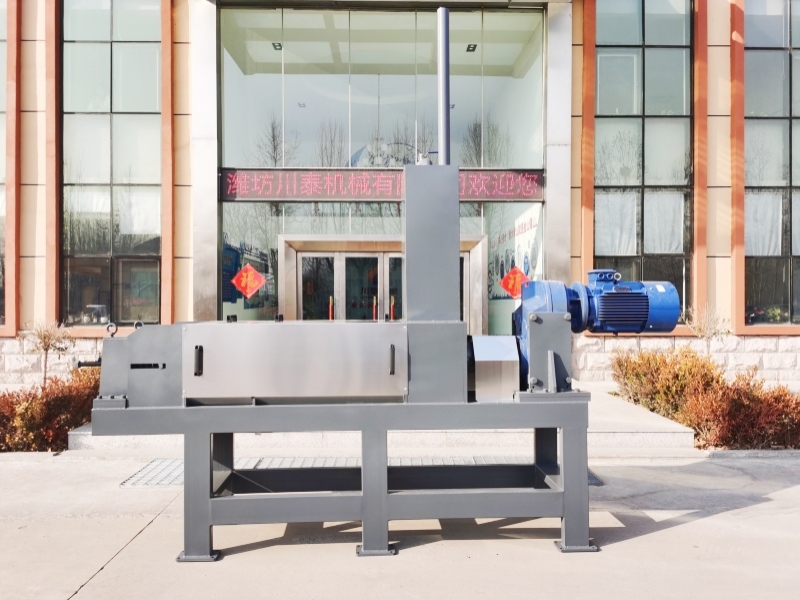
Cow dung dehydration machine
Cow dung, a common agricultural waste, has long been recognized as a valuable resource for its potential applications in biogas production, organic fertilizer, and soil improvement. However, its high moisture content poses challenges in handling, transportation, and utilization. To address this issue, cow dung dehydration processing machines have emerged as a practical solution, offering numerous advantages that contribute to efficient waste management and resource utilization.
Enhanced Resource Utilization:
Cow dung dehydration machines play a crucial role in optimizing the use of cow dung by reducing its moisture content. This process results in a concentrated and nutrient-rich organic material that can be utilized as high-quality organic fertilizer. The reduced water content also facilitates easier storage and transportation, ensuring that the valuable resource is more readily available for agricultural applications.
Biogas Production Efficiency:
High moisture content in cow dung can hinder the efficiency of biogas production in anaerobic digesters. By removing excess water through dehydration, the substrate becomes more conducive to the biogas fermentation process. This leads to increased biogas yields and improved methane production rates, ultimately enhancing the economic viability of biogas plants.
Reduction of Environmental Impact:
The proper management of cow dung is essential to prevent environmental pollution and contamination. Dehydration machines contribute to reducing the environmental impact by minimizing the release of harmful gases, foul odors, and pathogens associated with untreated cow dung. The resulting solid material is less likely to contribute to groundwater pollution or emit noxious odors, leading to improved air and water quality.
Labor and Time Efficiency:
Traditional methods of cow dung drying involve extended exposure to sunlight, which is both time-consuming and labor-intensive. Cow dung dehydration machines automate this process, significantly reducing the time required for drying and ensuring consistent results regardless of weather conditions. This labor-saving feature allows farmers to allocate their time and resources more efficiently.
Scalability and Versatility:
Cow dung dehydration machines are available in various capacities, ranging from small-scale units suitable for individual farmers to larger systems designed for commercial operations. This scalability makes the technology accessible to a wide range of users, from smallholder farmers to agricultural cooperatives and waste management facilities.
Odor Control:
One of the major challenges associated with handling cow dung is the strong and unpleasant odor it emits. Dehydration machines help mitigate this issue by reducing the moisture content, which in turn reduces the release of volatile organic compounds responsible for the foul smell. This not only improves the working conditions for farmers but also minimizes the negative perception often associated with cow dung.
Conclusion:
Cow dung dehydration processing machines offer a host of advantages that contribute to sustainable waste management, resource utilization, and environmental protection. By efficiently reducing the moisture content of cow dung, these machines enhance its potential for use in organic fertilizer production, biogas generation, and soil improvement. As the demand for efficient waste management and sustainable agricultural practices continues to grow, the adoption of cow dung dehydration machines presents a practical and effective solution.




If your company wants to establish a business relationship with us, please briefly describe the cooperation intention and send an email to:chuantaiscrewpress@gmail.com























































































![[list:title]](/static/upload/image/20240528/1716877114510915.jpg)